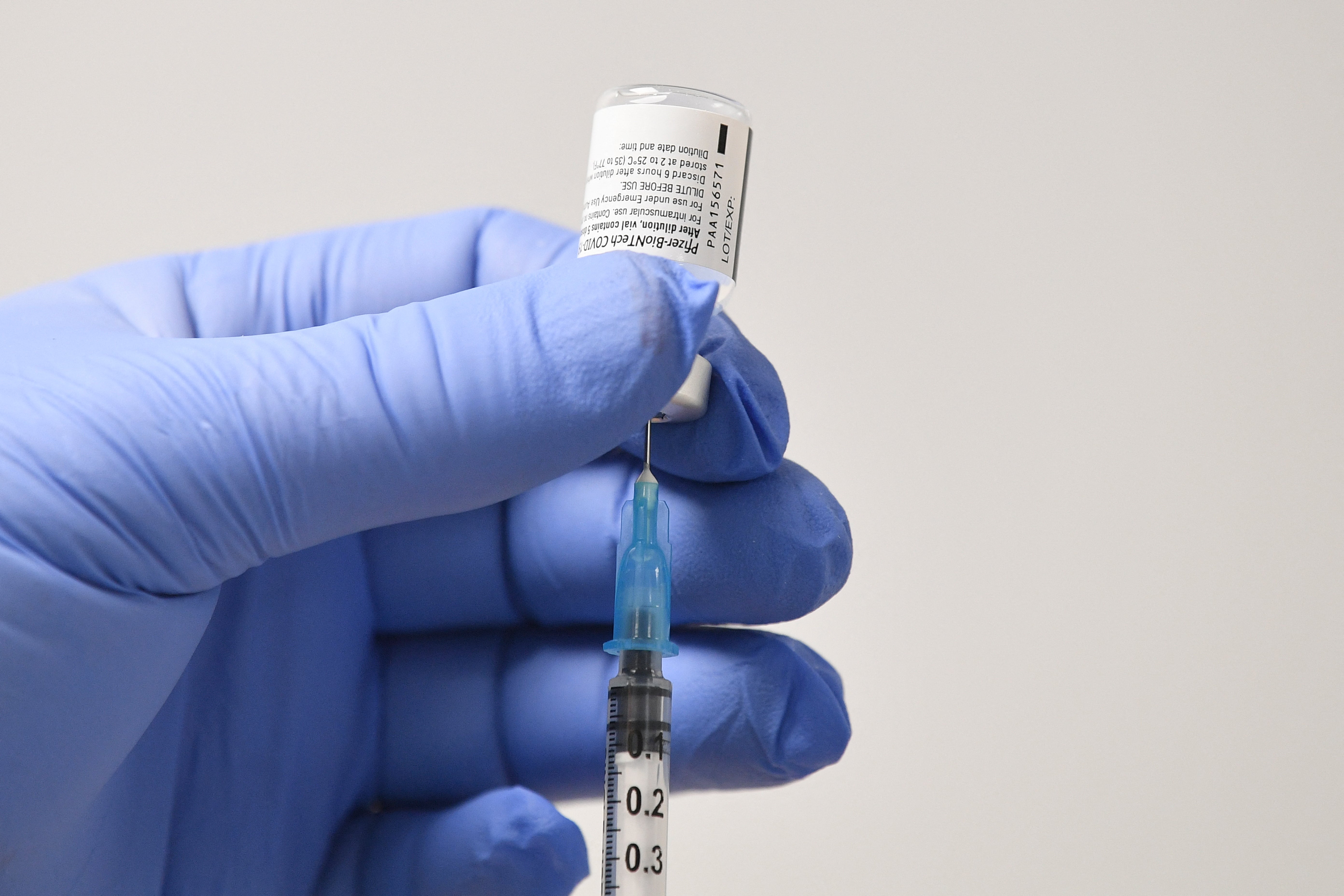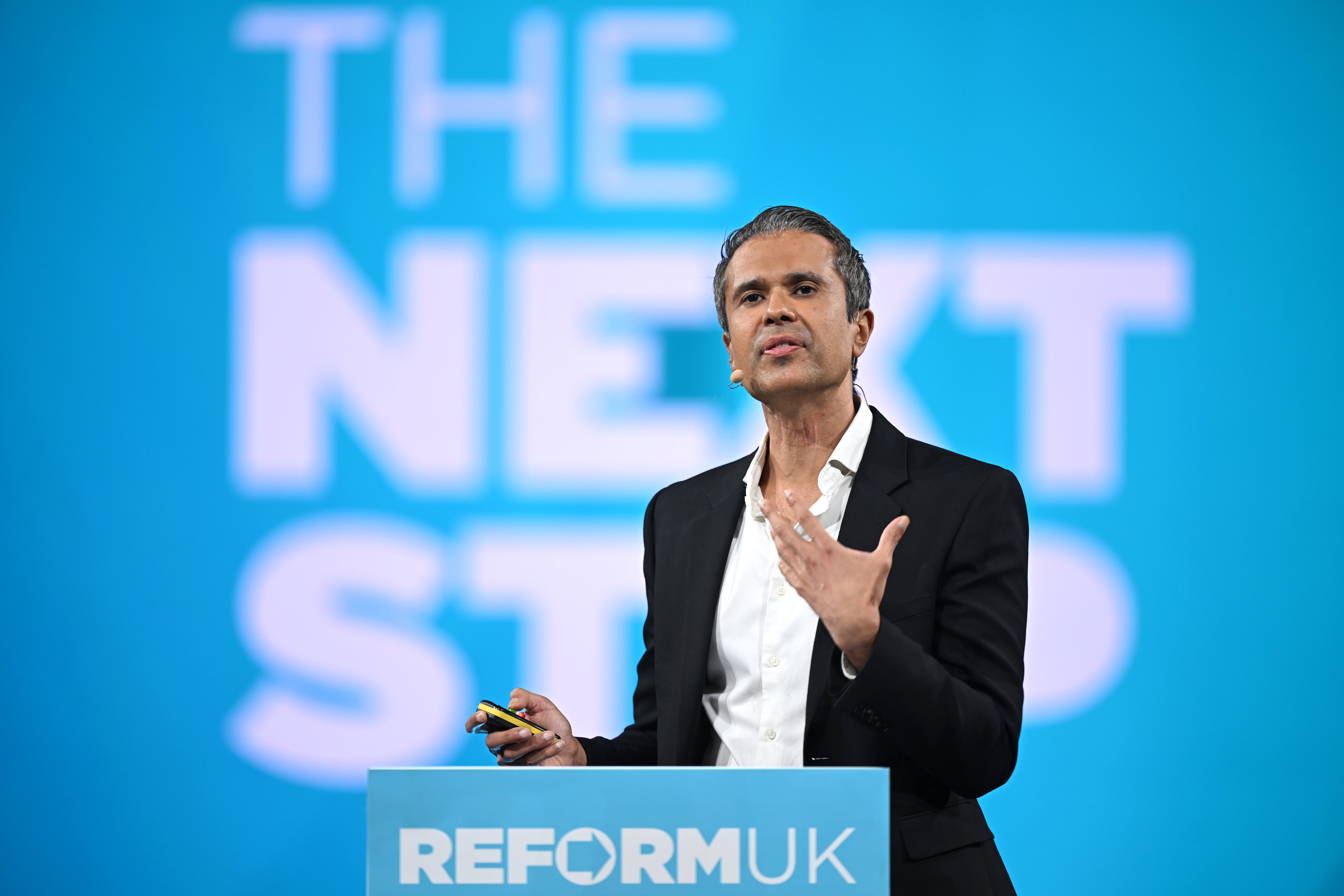

HEALTH
New Study: Faster Scans Could Help Millions Diagnose Prostate Cancer Sooner!
Published
2 months agoon
By
OBS
Millions of men could benefit from a faster scan to diagnose prostate cancer that could also save the NHS cash, researchers say.
The MRI scan takes just 15 to 20 minutes instead of 30 to 40 and is cheaper and just as accurate as current MRIs.
A new study on the scan, from University College London (UCL), University College London Hospital (UCLH) and the University of Birmingham, was published in the Journal of the American Medical Association (Jama).
Funded by the John Black Charitable Foundation and Prostate Cancer UK, it found that a two-part MRI could detect cancer at the same rate as a three-part MRI, which is the current standard of care and includes a third stage where a dye is injected into the patient.
The trial included 22 hospitals in 12 countries and included 555 patients aged 59 to 70.
Radiologists assessed the effect of a two-part scan without the dye, and separately assessed the three-part scan with the dye, for every patient in the study.
A prostate biopsy was done when required to confirm whether or not the diagnosis was correct.
Researchers found the quicker two-part scan was just as effective at diagnosing prostate cancer as the three-part.
In total, 29% of patients had cancer diagnosed by the shorter two-part scan, the same percentage as the longer three-part scan.
Associate Professor Veeru Kasivisvanathan, lead researcher from UCL and UCLH, said: “Currently around four million MRI scans are needed each year globally to diagnose prostate cancer.
“This demand is set to rise rapidly with a predicted surge in prostate cancer cases over the next 20 years.
“Time, cost and staff availability are all limiting factors in how many scans can be offered, which makes the results of (this) trial particularly important.
“If we can do the scan in up to half the time, with fewer staff and at lower cost, that will make a huge difference in allowing every man who needs a scan to be able to get one in a timely fashion.”
Associate Professor Francesco Giganti, from UCL and UCLH, said: “The three-part multiparametric MRI scan has been a game-changer for the diagnosis of prostate cancer, sparing thousands of patients unnecessary biopsies and improving cancer detection.
“Currently we inject a dye into the patient that highlights the presence of cancer on the MRI scan, but this step requires time and the presence of a clinician, and can on rare occasion cause mild side-effects.
“Being able to make accurate diagnoses without the contrast stage will reduce scan time, meaning we can offer scans to more men using the same number of scanners and operators.
“However, it is vital that the scans are of optimal diagnostic quality and that they are interpreted by a radiologist with dedicated expertise in prostate MRI.”
In the NHS currently, a three-stage MRI scan costs £2,733 on average whereas the two-stage scan is £145, researchers said.
Prostate Cancer UK’s Transform trial, the biggest prostate cancer screening trial for 20 years that will include MRI, is due to begin later this year.
The trial will find the best way to screen men for prostate cancer and could inform a national screening programme.
Dr Matthew Hobbs, director of research at Prostate Cancer UK, said the UCL findings were “a hugely important step in the right direction for making MRIs more efficient”.
He added: “Another trial is already happening in the UK and the results of the two trials together should provide the complete evidence package we need to change practice across the country.
“We encourage the National Institute for Health and Care Excellence to prepare to review their guidelines as soon as that evidence base is complete, so that we can make MRI quicker, cheaper and less onerous for men.”
Professor Freddie Hamdy, from the University of Oxford, and Jenny Donovan, from the University of Bristol, said there were limitations to the study, which were pointed out by the authors themselves.
They added: “What concerns us most is that the endpoint was the diagnosis of ‘clinically significant disease’, defined as Gleason Grade Group 2 or higher.
“This definition is increasingly questioned as being flawed because it still represents overdiagnosis in many cases, which in turn leads to overtreatment.”
They said it was also possible NHS centres with less expertise will continue to request a further multiparametric MRI to guide treatment decisions.
“This would represent an increased cost and burden to health systems and would need to be monitored and investigated further in addition to addressing training issues, quality control, health economics and developing the potential role of AI in the future mentioned by the authors,” they said.
Ben Lamb, consultant urological and robotic surgeon, from Queen Mary University of London, welcomed the study, adding: “Without doubt, the current advice on assessing men’s prostate cancer risk and PSA testing needs to be revised.
“However, we should not rush into a national screening programme without carefully considering the most effective way of doing it, and also the impact of resource allocation on other areas of healthcare.”
The two-part scan involves imaging to create a very detailed picture of the anatomy of the prostate, showing its different zones and whether something looks abnormal in shape or texture. Cancer usually appears darker.
The second part looks at how water molecules move inside the tissue. Cancer usually makes tissues more packed so water moves less freely.
You may like
-
Breaking News: SEC Unveils Faster Settlement Cycle—Revolutionizing Market Efficiency!
-


Study Reveals Mounjaro and Ozempic Demand Causing NHS Waiting List Delays!
-


Are You at Risk for Prostate Cancer? Discover Why Some Men Could Miss Important Screenings!
-


Apple Unveils Exciting New Vision Pro Headset, Plus Faster iPad and Mac!
-


Revolutionary ‘Super Vaccine’ May Completely Halt Cancer Spread!
-


Discover the Pharmacy Cream That Can Help Fight Skin Cancer!
HEALTH
Can’t Tell If It’s Covid or the Flu? Here Are the Key Symptoms You Must Recognize as Cases Surge!
Published
2 weeks agoon
October 16, 2025By
OBS
Health officials are warning of a seasonal surge in flu and Covid-19, with cases already starting to rise as autumn arrives.
But because the two viruses share many symptoms, it’s difficult to tell them apart.
When a sniffle seems to progress further than “just a cold”, it’s hard to know what it might be – but there are differences in how the viruses appear and the risks they pose.
Do I have Covid?
Covid-19 continues to cause serious illness, particularly among vulnerable groups. The virus is constantly evolving, with new variants spreading easily through coughs, sneezes or even conversation.
Vaccination campaigns each autumn continue to try to prevent hospitalisations and deaths.
The list of symptoms has shifted since 2020. Many people now experience cold-like symptoms, such as a runny nose, sore throat or blocked sinuses. But others still report fever or chills, a persistent cough, fatigue, headaches, shortness of breath, or a loss of taste and smell. Nausea and diarrhoea can also occur.
Doctors say a hoarse throat has become one of the hallmark features of the latest variants.

The latest strain, called Stratus, has two variants, XFG and XFG.3. Another recent strain, NB.1.8.1 nicknamed Nimbus, is also prevalent.
“Stratus is linked to hoarseness and fatigue, whereas Nimbus is associated with a ‘razor-blade’ sore throat and digestive symptoms like nausea and bloating,” explains Dr Bruno Silvester Lopes, lecturer in microbiology at Teesside University. “Both are highly transmissible but not more severe than previous variants.”
Despite accounting for a large proportion of new cases, experts are not concerned about the spread, noting it is normal for viruses to mutate and change.
Those aged 65 and over, care home residents, and people with underlying health problems are all entitled to the Covid-19 booster.
Do I have the flu?
Flu is a respiratory infection that strikes hardest in winter and can be far more debilitating than the common cold. While colds typically bring a runny nose, sneezing, watery eyes and mild throat irritation, flu tends to arrive suddenly with fever, aches and exhaustion.
Last winter alone, the flu sent more than 8,000 people to hospital. Over the past two years, at least 18,000 deaths in the UK have been linked to the virus. Children, older adults, people with long-term health problems and those with weakened immune systems face the highest risks.

Vaccination remains the strongest defence. Research shows that last year’s jab prevented thousands of severe cases, cutting hospital admissions by almost a third among over-65s and by more than half among children aged two to 17.
This autumn, the flu vaccine is being offered free to those over 75, pregnant women, children aged 2 and 3 through their GP, and schoolchildren from reception to year 11 via nasal spray. Adults under 65 with certain health conditions are also eligible.
How to tell difference between Covid and a cold
Colds and Covid can be tricky to distinguish as many of their symptoms overlap.
“Both can give you a sore throat, runny or stuffy nose, sneezing, and coughing,” says Dr Chun Tang, a GP at Pall Mall Medical. “However, Covid can also cause fever, fatigue, muscle aches, and that telltale loss of taste or smell – although that’s less common with newer variants.
“Covid is also more likely to make you feel wiped out, like you’ve been hit by a truck, whereas a cold tends to stay in your head and chest.”
“Both spread mainly through droplets when someone coughs, sneezes, or even talks near you,” says Tang. “Covid, however, can also spread more easily through the air in tiny particles that linger, especially in crowded or poorly ventilated spaces.
“So, while a cold might need a bit of close contact to catch, Covid can sometimes sneak across the room if you’re unlucky.”
Are cases climbing now?
According to the UK Health Security Agency, levels of flu and Covid-19 are already on the rise running into winter, joining other seasonal bugs such as RSV and norovirus.
UKHSA reported an increase in the number of reported Covid diagnoses in its 9 October report, with the most prevalent strain noted as Stratus XFG. Flu activity was also increasing among young adults with a surge in emergency department attendances for flu-like illnesses.
Experts say the risk is highest during the colder months when viruses spread more easily indoors.
Officials are urging everyone eligible to take up their vaccines to reduce the strain on hospitals and protect the most vulnerable. Both flu and Covid-19 can be serious, but prevention and early awareness remain the best tools against them.
HEALTH
Shocking Recall: Grocery Store Taco Kits Contain Hot Chocolate Packets!
Published
2 weeks agoon
October 16, 2025By
OBS
The Giant Company is recalling its Giant and Martin’s-branded hard taco dinner kits after hot chocolate sachets were discovered inside the packages.
The mix-up, announced October 10, could pose a risk to consumers with milk allergies.
The recall affects the 9.4-ounce Giant/Martin’s Hard Taco Dinner Kit (UPC 068826757516) all lot and codes, with a best-by date of March 13, 2026.
Consumers with a milk allergy should not eat the kits. Anyone who purchased the affected product can return it to a nearby store with a receipt to receive a refund.
Milk allergy is a common food allergy in children, caused by cow’s milk or milk from other mammals, according to Mayo Clinic.
.jpg)
Reactions can occur soon after consumption and range from mild symptoms like hives, vomiting, and digestive issues to severe, life-threatening anaphylaxis.
The main treatment is avoiding milk and milk products. Most children outgrow the allergy, while others may need to avoid milk long-term.
Meanwhile, Sno Pac Foods, a Minnesota-based company, has issued a nationwide recall of its frozen spinach products due to potential contamination with Listeria monocytogenes, a bacterium that can cause serious infections.
The recall affects two products: Del Mar 35-pound Bulk Organic Frozen Spinach and Sno Pac 10-ounce Organic Frozen Cut Spinach. These products were distributed across various retail stores in the U.S. The recall was prompted after a bulk case of spinach from a supplier tested positive for the bacterium.
This same lot was used to repack the Sno Pac Organic Frozen Cut Spinach into 10-ounce bags. As a precaution, Sno Pac Foods has suspended production of these products while investigating the source of the contamination.
No illnesses have been reported in connection with the recalled products. However, Listeria monocytogenes poses a significant health risk, particularly to young children, the elderly, pregnant women, and individuals with weakened immune systems.
In healthy individuals, infection may cause short-term symptoms such as high fever, severe headache, stiffness, nausea, abdominal pain, and diarrhea. Pregnant women are especially vulnerable, as infection can lead to miscarriage or stillbirth.
HEALTH
Could Trump’s Meds Be Slowing Him Down? Expert Warns They Might Not Be Helping!
Published
2 weeks agoon
October 16, 2025By
OBS
An adviser to Health Secretary Robert F. Kennedy Jr. warned Wednesday that President Donald Trump may appear to be “slowing down” because of the medication he takes, as questions continue over the president’s mental and physical health.
In a speech to the European Parliament, Dr. Aseem Malhotra, a British cardiologist who advised the lobby group Make America Healthy Again, said that Trump, 79, may be suffering from fatigue due to his use of cholesterol medications, or statins, and aspirin.
“President Trump is taking statins; he’s on two cholesterol drugs… This man does not have any cardiovascular disease,” Malhotra said during a launch event for a new European health activism organization, Make Europe Healthy Again (MEHA).
“If you’re over 75 and have no cardiovascular disease, the benefit of statin is – are you ready? One in 446. You have to give the statin to 446 people to prevent one cardiovascular event,” he said. “In other words, no significant benefit.”
Malhotra, a vaccine skeptic whose anti-COVID shot and anti-statin views have been rebuked as misinformation by medical experts, has been a close ally to Kennedy.

His comments come amid claims that the president may be showing signs of “cognitive decline,” due to mixing up names and other gaffes. Despite the speculation, the White House said last week that Trump was in “excellent overall health” following a “routine check-up” at Walter Reed Medical Center.
In addition to concerns about his mental acuity, Trump’s physical health has also come under question. The president has often been photographed with bruising on his right hand, raising concerns that he is suffering from some illness. The White House insists that this is a result of him shaking hands with a large number of people and his use of aspirin, which he takes as a cardiovascular protection.
White House officials revealed earlier this year that he had been diagnosed with chronic venous insufficiency, a non-life-threatening condition caused by the veins struggling to return blood to the heart. The condition is common for people over the age of 70.
During his remarks, Malhotra noted that cholesterol medication often comes with side effects, saying: “The most common ones are fatigue, muscle pain. It can cause brain fog.”
He added: “Now, I know that President Trump is a remarkable man for his age, but there have been reports – probably exaggerated by some sort of devious press for sure. But I know people who are close to him… and of course he is doing a tremendous job and maybe only sleeping four hours a night, and that may be part of it too, but it could also be that he’s slowing down a little bit because of his statins,” he continued.

Malhotra then suggested that Trump go “off his statins, off his aspirin” and would be “feeling great” within a matter of weeks.
He was apparently so concerned about Trump taking the medications that he has reached out to several people close to the president to try and warn him against it, The Daily Beast reported Tuesday ahead of Malhotra’s public remarks.
In a statement to The Independent, the White House said: “President Trump is a champion-level golfer with the mental acuity and energy levels that most young people could not fathom having.”
“So-called medical ‘experts’, especially foreign ones with no relevance or involvement with the Administration, should stop beclowning themselves and marring their credibility by pitching their idiotic hot takes with Fake News outlets that have nothing better to cover,” White House spokesman Kush Desai said.

Along with Trump’s most recent gleaming health report, White House officials noted the president received a flu shot and an updated COVID-19 booster, which Malhotra called unnecessary.
“I think President Trump, I think he genuinely took the [COVID-19] booster, I don’t think that this is a front. I think he believes in what’s happening. He himself is also a victim of medical misinformation,” Malhotra said.
However, recent research shows that COVID shots protect against serious illness and death, especially for people over the age of 65. Researchers from the VA St. Louis Healthcare System looked at data from nearly 300,000 veterans and found that last season’s Covid vaccine reduced the risk of emergency room visits by 29 percent, hospitalizations by 39 percent and deaths by 64 percent for all ages, NBC News reports.
Combining all three outcomes, the shots’ overall effectiveness was 28 percent, making it similar to the flu shot, which ranges from 30 to 60 percent protective against severe illness or death.
An April health report also noted that Trump, who was the oldest person to ever take office in January at 78, was in “excellent” health.
The report also noted that Trump had high cholesterol that was being treated with the statin rosuvastatin and ezetimibe, a medication used to absorb cholesterol. He was also taking a low-dose aspirin as part of the treatment, his doctors said at the time.
While there is no evidence that statins alone cause dementia, the FDA added a safety warning to the medications in 2012 to warn of “notable, but ill-defined memory loss or impairment that was reversible upon discontinuation of statin therapy.”
Last month, Malhotra made headlines after suggesting – without evidence – that King Charles III may have gotten cancer because of the COVID-19 vaccine.
Categories
Top Tags
Related posts






















